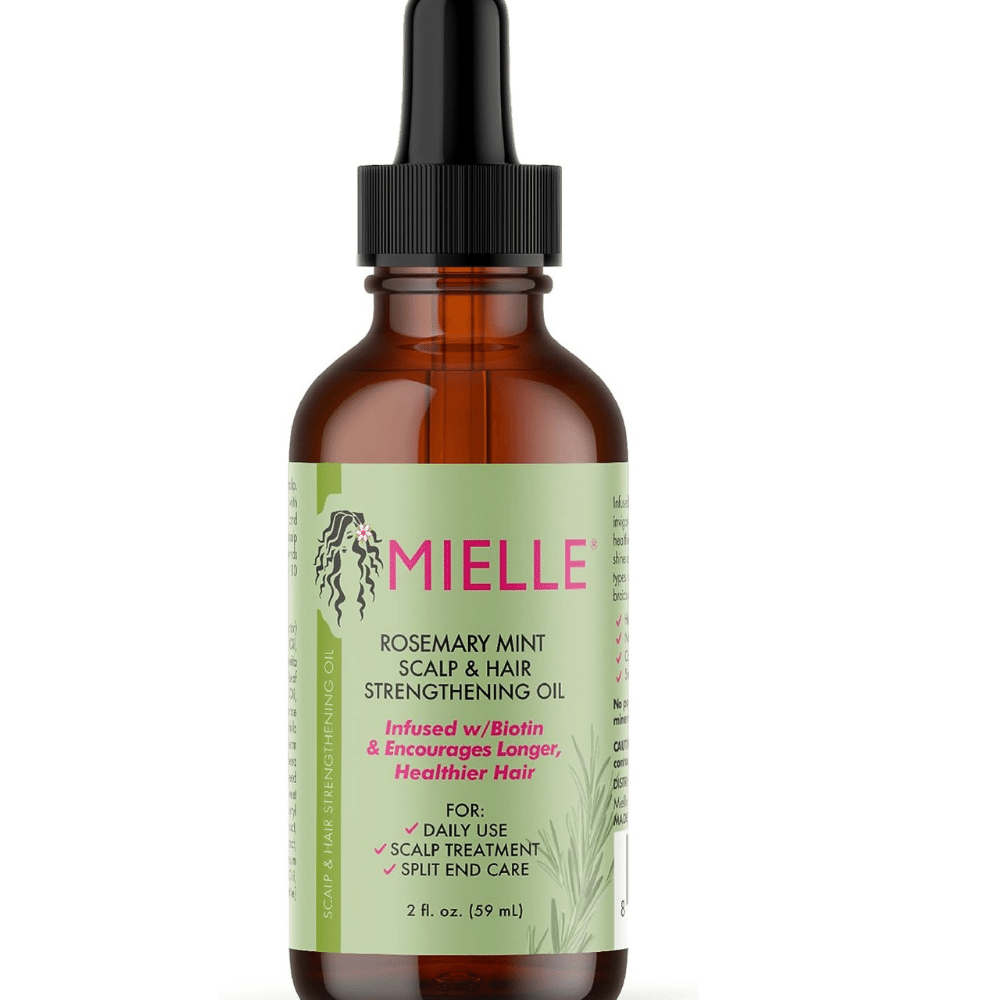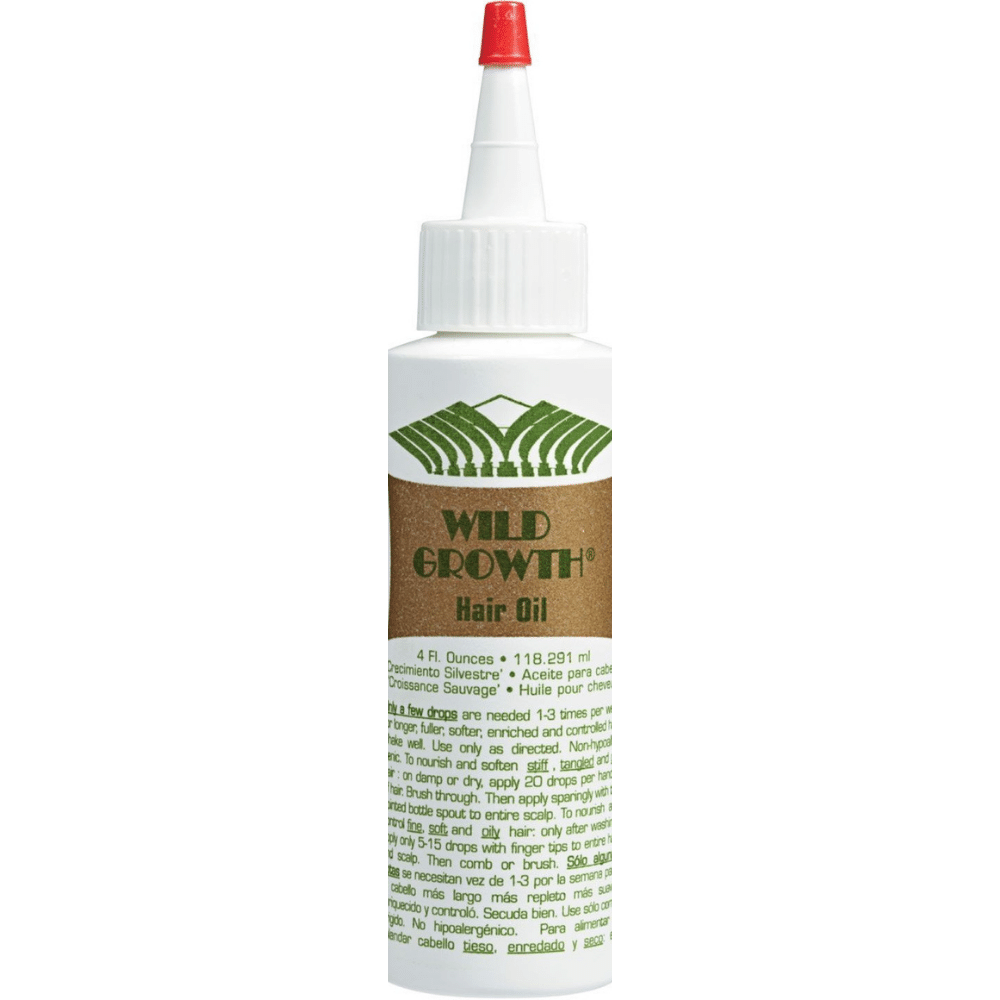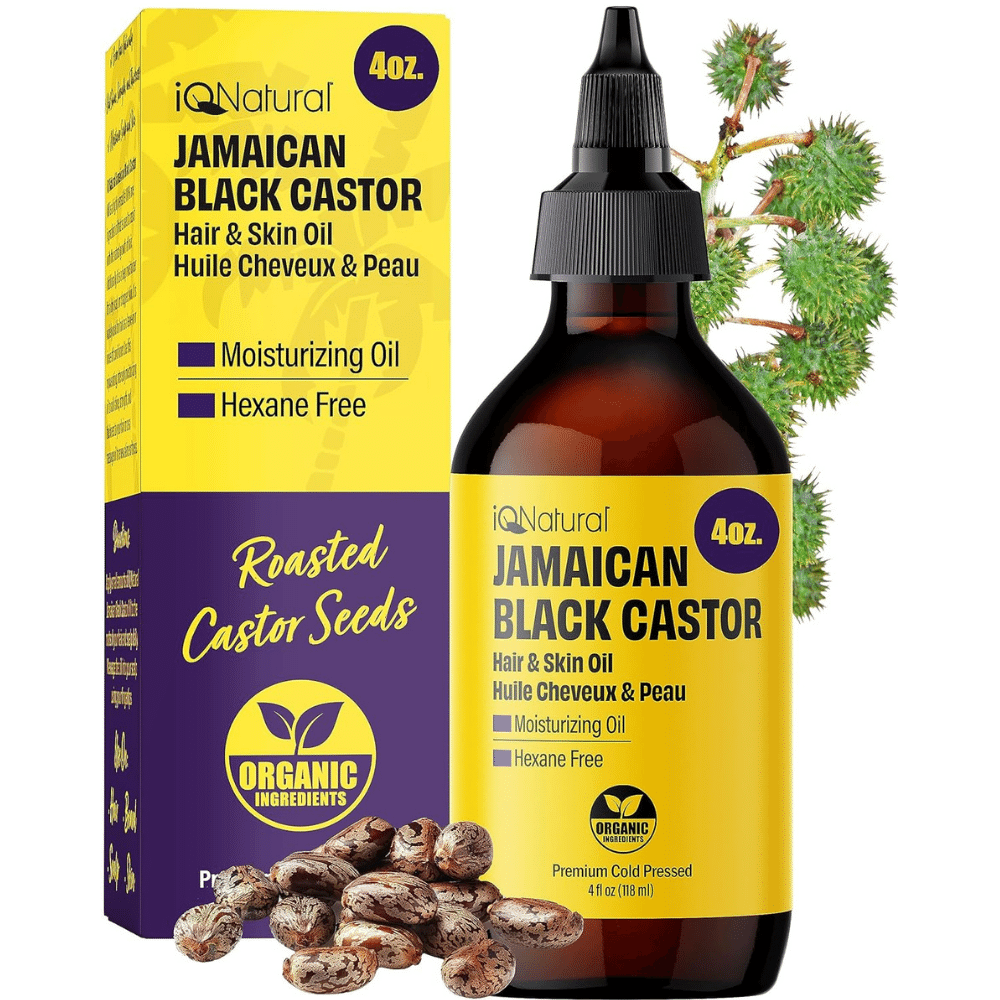Best Hair Oil For Healthy Hair
Chemicals in shampoos, and styling products can really damage your hair. The right oil can make sure your locks look glossy and gorgeous!

Do you want to improve the length and volume of your hair?
Who doesn't, right? Oils are an essential part of a healthy lifestyle for those looking to promote long and lustrous locks.
Hair growth isn’t just limited to people with thinning or short tresses; we all can benefit from using natural oils on our scalp.
Research has shown us that incorporating the best oils for hair growth into your haircare routine can produce remarkable results in no time!
In this blog post, we'll discuss what exactly makes certain oils beneficial for strengthening existing strands while also encouraging thicker hair growth.
First, let's talk about the importance of scalp health. A healthy scalp is vital for promoting hair growth as it provides a nourishing environment for your hair follicles to thrive.
Oils are not only helpful in moisturizing and soothing the scalp but also in stimulating blood circulation, which allows essential nutrients to reach the follicles more efficiently.
Tired of your hair breaking?
Want to know the oils to protect your strands from everyday manipulation and wear and tear?
Well, look no further, our team has comprised the most complete list ever of the 3 top hair-growing oils for 4c hair.
It's time to sit back, relax and scroll through some serious oils that should be in your hair product arsenal.
Why Use Hair Oils
Hair growth is a complex process that involves several factors, including genetics, nutrition, and overall health.
The use of oils can help stimulate hair follicles, promote blood circulation, and nourish the scalp with essential nutrients.
Additionally, oils can provide a protective barrier to your strands, preventing damage from environmental stressors and styling tools.
Oils can also add moisture and shine to the hair, making it look healthier and more vibrant.
The Best Oils for Fine Hair
There are numerous oils available in the market that claim to promote hair growth.
However, not all oils are created equal, and some may be more effective than others.
Below are the three top oils for promoting hair growth in 4c hair.
How did we choose the most efficient brands...
When it comes to finding the most efficient brands, there's no better place to turn to than the customers who have already tried and tested them out.
That's why examining customer feedback and reviews is our top priority when trying to determine which brands stand out from the rest.
Not only does it give us insight into the quality of the products, but it also allows us to get a sense of how reliable the brand is overall.
So, when you're looking for the most efficient option on the market, be sure to take note of what other customers are saying before making your final decision.
Furthermore, choosing a brand with natural and organic ingredients is always a wise choice.
These types of oils are free from harmful chemicals and additives that can potentially cause damage to your hair in the long run.
Plus, they often contain essential vitamins and nutrients that promote healthy hair growth.
So not only will you be using an efficient oil for hair growth, but also one that is gentle and nourishing for your strands.
This Hair Oil is fortified with a blend of other essential oils that stimulate hair growth.
The consistent use of this hair oil not only helps in achieving thicker, longer hair but also strengthens the hair from the roots, reducing breakage and split ends.
The oil is also lightweight, meaning it won't weigh down your hair or leave it feeling excessively oily.
Thus, Wild Growth Hair Oil offers a comprehensive solution for healthy, vibrant, and resilient 4c hair.
For those with 4c hair types seeking to enhance their hair's health and growth, IQ Natural Jamaican Black Castor Oil is a remarkable product to consider.
This oil is rich in ricinoleic acid, a type of fatty acid known to enhance blood circulation at the scalp, hence prompting healthier hair growth.
In addition to promoting growth, the oil also offers exceptional moisturizing benefits.
Being a humectant, it helps to lock in moisture, preventing the hair from drying out.
This is particularly beneficial for 4c hair type which often struggles with dryness.
Moreover, castor oil's high protein content helps to strengthen the hair strands, reducing breakage and promoting thicker, fuller hair.
Another significant benefit of IQ Natural Jamaican Black Castor Oil lies in its potential to restore the scalp's pH balance.
An unbalanced scalp environment can lead to issues like dandruff, scalp infections, and ultimately, hair loss.
By restoring the pH balance, the oil can help to mitigate these issues, fostering a healthy environment for hair growth.
IQ Natural Jamaican Black Castor Oil is a potent and natural solution for maintaining and enhancing the health and growth of 4c hair.

Best Oil For Hair Strengthening
Mielle Strengthening Oil with Biotin and Rosemary
It contains a unique blend of biotin and essential oils that work together to fortify the hair and stimulate hair follicles.
The oil's key ingredient, biotin, is a vital vitamin known for its role in hair health.
It helps in keratin production, a type of protein that makes up hair, thereby promoting stronger and healthier strands.
Furthermore, the essential oils - particularly rosemary and mint - stimulate blood circulation to the scalp, promoting the growth of new hair and reducing hair loss.
This product also excels in providing moisturizing benefits.
It is formulated in such a way that it prevents dryness without leaving excessive oil on the scalp or hair.
This makes it particularly beneficial for 4c hair, which tends to struggle with maintaining moisture.
Mielle Organics Rosemary Mint Scalp & Hair Strengthening Oil offers a natural, potent solution that strengthens and moisturizes 4c hair, promoting a healthier and more vibrant appearance.
FAQ’s
How often should I oil my 4C hair for damaged hair?
The frequency of oiling your 4c hair for growth can vary depending on your hair type and needs. Generally, it is recommended to oil your hair at least once a week or every other day if you have dry hair. However, it is important to listen to your hair and adjust the frequency accordingly. If your hair feels weighed down or overly greasy, reduce the frequency of oiling. If it still feels dry and brittle, try increasing the frequency.
Can I use essential oils directly on my scalp?
It is not recommended to use essential oils directly on your scalp as they are highly concentrated and can irritate. It is important to dilute them with a carrier oil, such as coconut or jojoba oil, before applying them to your scalp.
What oil promotes the most hair growth?
Several oils are known for promoting hair growth, but one of the most effective is castor oil. It contains omega-6 fatty acids which help nourish and strengthen the hair, promoting healthy growth. Additionally, its anti-inflammatory properties can also help improve scalp health and stimulate hair follicles. Other oils that are beneficial for hair growth include peppermint oil, rosemary oil, and tea tree oil.
Can I use scalp oils if I have a sensitive scalp?
Yes, you can still use scalp oils even if you have a sensitive scalp. However, it is important to choose gentle and natural oils that will not irritate your skin. It is also recommended to do a patch test before applying the oil to your entire scalp. If you experience any irritation or discomfort, discontinue use immediately and consult with a dermatologist for alternative options.
What is the best time to apply scalp oils?
The best time to apply scalp oils is right after washing your hair while it is still damp. This allows the oil to penetrate the hair and scalp more easily. You can also apply scalp oils before bedtime and leave them on overnight for maximum absorption and nourishment.
Can I use scalp oils if I have oily hair?
Yes, you can still use scalp oils even if you have oily hair. However, it is important to choose lightweight and non-comedogenic oils that will not weigh down your hair or clog your pores. Some good options for oily hair include jojoba oil, grapeseed oil, and argan oil. It is also recommended to use scalp oils in moderation and avoid applying them too close to the roots of your hair.
Are there any other benefits of using scalp oils?
Yes, aside from promoting hair growth, using scalp oils can also have other benefits such as reducing dandruff, relieving scalp itchiness, and improving overall scalp health. Oils like tea tree oil have anti-inflammatory and antimicrobial properties that can help with various scalp conditions. Additionally, the act of massaging oils into your scalp can also improve blood circulation and promote relaxation. So even if you don't struggle with hair growth issues, incorporating scalp oils into your hair care routine can still be beneficial.
What are some other ways to use scalp oils?
Aside from using them as a pre-shampoo treatment or leave-in conditioner, you can also incorporate scalp oils into your hair masks and deep conditioning treatments. Mix a few drops of your chosen oil with a moisturizing base such as avocado or banana for added nourishment. You can also use scalp oils to tame frizz and add shine to your hair by applying a small amount onto your palms and lightly running them through your hair. Additionally, some people also like to use scalp oils as a natural alternative to styling products, providing hold without harsh chemicals. The possibilities for using scalp oils are endless, so don't be afraid to get creative and experiment with different methods to find what works best for you. Remember to always patch test any new oil before applying it all over your scalp and hair. Overall, incorporating scalp oils into your hair care routine can be a simple yet effective way to improve the health and appearance of your hair.
Can I leave the oil in my 4c hair overnight?
Yes, you can leave the oil in your 4c hair overnight for deeper penetration and moisturization. Just be sure to use a small amount and cover your hair with a silk or satin scarf to prevent any transfer onto your pillowcase. You can also use a plastic cap or shower cap to trap heat and enhance the oil's benefits. In the morning, wash your hair as usual and enjoy nourished and hydrated locks. However, it is important to note that leaving oils in your hair for extended periods may cause buildup, so be sure to clarify your scalp regularly. It is also recommended to alternate between leaving the oil in overnight and washing it out after a few hours, to avoid any potential negative effects. As with any hair care practice, consistency is key - so make sure to incorporate scalp oils into your routine regularly for maximum benefits. Additionally, be mindful of the ingredients in your chosen oil and make sure it aligns with your hair's specific needs and preferences. Some popular scalp oils for 4c hair include coconut oil, castor oil, jojoba oil, and avocado oil - but feel free to experiment with different options to find what works best for you.
Can too much oil stop hair growth?
Using too much oil on your hair can potentially clog the pores and inhibit hair growth. It is important to use oils in moderation and find the right balance for your specific hair type and needs. Additionally, using the wrong type of oil for your hair can also cause issues. For example, heavier oils like castor oil may be too heavy for fine or thin hair and could weigh it down, while lighter oils like argan oil may not provide enough moisture for thicker or coarser hair. Experiment with different types and amounts of oil to find what works best for you.
Are scalp oils safe for all hair types?
Scalp oils can be beneficial for all hair types, but it is important to choose the right oil for your specific hair needs. As mentioned before, some oils may be too heavy or light for certain hair types. It is also important to consider any potential allergies or sensitivities you may have to certain ingredients in the oils. If you have any concerns, it is always best to consult with a dermatologist or trichologist before incorporating scalp oils into your hair care routine. With the right oil and proper usage, scalp oils can be a great addition to any hair care routine and help promote healthy hair growth.
How many times should I oil my hair in a week for hair growth?
As mentioned earlier, the frequency of oiling your hair for growth can vary based on your hair type and needs. It is generally recommended to oil your hair at least once a week, but you may need to adjust the frequency based on your own experience and results. It is important to listen to your hair and find what works best for you. Additionally, using a mix of different oils can also be beneficial for promoting hair growth. Experiment with different combinations and see what works best for your hair. Remember to always use a small amount of oil and massage it into your scalp for maximum absorption and benefits.
Some popular oils for promoting hair growth include castor oil and rosemary essential oil. These oils are known for their nourishing properties and ability to stimulate blood circulation in the scalp, which promotes healthy hair growth.
What are some good carrier oils for 4c hair?
Some great carrier oils for 4c hair include jojoba oil, avocado oil, and almond oil. These oils are lightweight and easily absorbed by the hair, providing nourishment and moisture without weighing it down. Additionally, they can also help with detangling and reducing frizz in 4c hair. So don't be afraid to experiment with different carrier oils to find the best one for your hair. Be sure to also consider your hair's porosity when choosing a carrier oil, as this can affect how well it is absorbed by the hair.
What are some essential oils that promote hair growth?
Some essential oils that have been shown to promote hair growth include peppermint oil, rosemary oil, and lavender oil. These oils help stimulate blood flow to the scalp, which can aid in hair growth. They also have anti-inflammatory properties that can help soothe and nourish the scalp, creating a healthy environment for hair growth. However, it is important to dilute these essential oils with a carrier oil before applying them to the scalp to avoid any potential irritation or adverse reactions. Overall, incorporating these essential oils into your hair care routine can be a beneficial addition to promoting hair growth.
What oil is good for natural African hair?
Natural African hair can benefit from a variety of oils, including coconut oil, olive oil, castor oil, and argan oil. These oils help to moisturize and nourish the hair, promote growth, and improve overall hair health. It is important to note that what works for one person may not work for another, so it's best to experiment with different oils and see what works best for your specific hair type and needs. Keep in mind that some oils, such as olive oil, may be more suitable for low-porosity hair while others may work better for high-porosity hair. Ultimately, it's important to find the right balance of moisture and nourishment for your natural African hair to keep it healthy and promote growth. So, don't be afraid to try different oils and see which ones work best for your hair. Additionally, incorporating a regular deep conditioning treatment with natural oils can also help improve the overall health and strength of your natural African hair.
What oil should I use for my 4c hair?
As mentioned before, some great oils for 4c hair include coconut oil, jojoba oil, avocado oil, and almond oil. Additionally, you can also try using grapeseed oil, which is lightweight and easily absorbed by the hair while providing essential nutrients. It's always best to do a patch test and see how your hair responds before incorporating any new oils into your hair care routine. Also, don't be afraid to mix oils to create a customized blend that works best for your 4c hair. Remember, consistency is key when it comes to promoting growth and maintaining healthy natural hair, so make sure to incorporate these oils regularly into your routine for the best results. In addition to using oils topically, it's important to nourish your hair from the inside out by staying hydrated and eating a balanced diet rich in vitamins and minerals. By taking care of your hair both internally and externally, you can achieve beautiful, healthy 4c hair that reflects your unique beauty and style. So keep experimenting, learning, and showing love to your natural African hair – it will thank you with its strength and beauty.
Can you use coconut oil on 4C hair?
Yes, it's a great option for 4c hair. It helps to moisturize and nourish the hair while also providing essential nutrients. However, it's important to note the excessive use of applying hair oil. Can lead to buildup and weigh down the hair, so it's important to use it in moderation and find the right frequency for your specific hair type. As mentioned before, it's always best to do a patch test and see how your hair responds before incorporating any new oils into your routine. Additionally, some people with 4c hair may find that the hair oil is too heavy for their hair and prefer lighter options such as jojoba or almond oil. It's all about finding what works best for your hair and being open to trying different oils. Regardless of which hair oil you choose, make sure to always properly cleanse and condition your hair to prevent any buildup or clogged pores that can hinder hair growth. With the right combination of oils and a healthy hair care routine, you'll be well on your way to flourishing 4c hair. So don't be afraid to experiment and find what works best for you!
Does oil moisturize 4C hair?
Yes, oils can help to moisturize 4c hair by providing essential nutrients and locking in moisture. However, it's important to note that oil alone may not be enough to fully moisturize the hair. It's also important to use other moisturizing products and techniques such as deep conditioning and protective styling to keep 4c hair hydrated and healthy. Additionally, not all oils may work well for every person's hair type, so it's important to do a patch test and see how your hair responds before fully incorporating any new oils into your routine. Finding the right combination of products and techniques is key to maintaining moisture in 4c hair.
How do you seal your hair with oil?
To seal your hair with oil, start by applying a leave-in conditioner or moisturizer to damp hair. Then, take a small amount of oil (such as argan oil or vitamin E) and rub it between your palms. Gently smooth the oil over your hair, focusing on the ends and any areas that tend to be drier. You can also use a wide-tooth comb to distribute the oil evenly throughout your hair. This helps to seal in the moisture and keep your hair hydrated for longer. Remember to use a small amount of oil to avoid weighing down your hair or making it appear greasy.
Should you apply hair oils on wet or dry hair?
It depends on the purpose of applying the oil. If you're using a hair oil as a sealant to lock in moisture, it's best to apply a few drops on damp hair. This allows the oil to trap the moisture and keep your hair hydrated for longer. However, if you're using an oil for styling or adding shine, you can apply it on dry hair. Just be careful not to use too much as it may weigh down your hair. It's important to find the right balance and frequency of oil to protect hair.
Other tips for maintaining moisture in 4C hair
Aside from sealing your hair with oil, there are other tips and techniques you can incorporate into your routine to keep 4c hair moisturized. Deep conditioning treatments, either with a store-bought product or DIY at-home methods, can help restore moisture to dry hair. Protective styling, such as braids or twists, can also help retain moisture by minimizing manipulation and exposure to harsh elements. Additionally, using a satin bonnet or pillowcase can prevent moisture loss while you sleep. Regular trims and avoiding heat styling can also contribute to maintaining healthy, moisturized 4c hair. Experiment with different methods and find a scalp treatment that works best for your hair type and needs.
To sum it up
With all of these oils and growing facts. When choosing the best hair oil, go for what makes you feel comfortable. Some oils are thicker and may weigh your hair down while others are lighter and may not provide enough moisture for 4c hair. It's all about finding the right balance and combination of products to keep your hair healthy, hydrated, and thriving. Additionally, regular trims and a healthy diet can also contribute to the overall health and growth of 4c hair. Experiment with different oils and techniques to find what works best for your unique hair type. And remember, consistency is key when it comes to seeing results with any hair care routine. So keep at it and you'll soon have strong, beautiful 4c hair that you can be proud of. Keep showing your hair love and it will flourish!
In addition to using oils, other factors can affect the health of your 4c hair. One important factor is how often you wash your hair. Over-washing can strip the natural oils from your scalp and cause dryness while under-washing can lead to product buildup and clogged pores. It's important to find a balance and listen to your hair's needs. You may also want to consider using a deep conditioning treatment once a week or every other week to keep your hair nourished and moisturized. Another important factor is protecting your hair while sleeping. Consider investing in a silk or satin bonnet or pillowcase to reduce friction and prevent breakage while you sleep.





